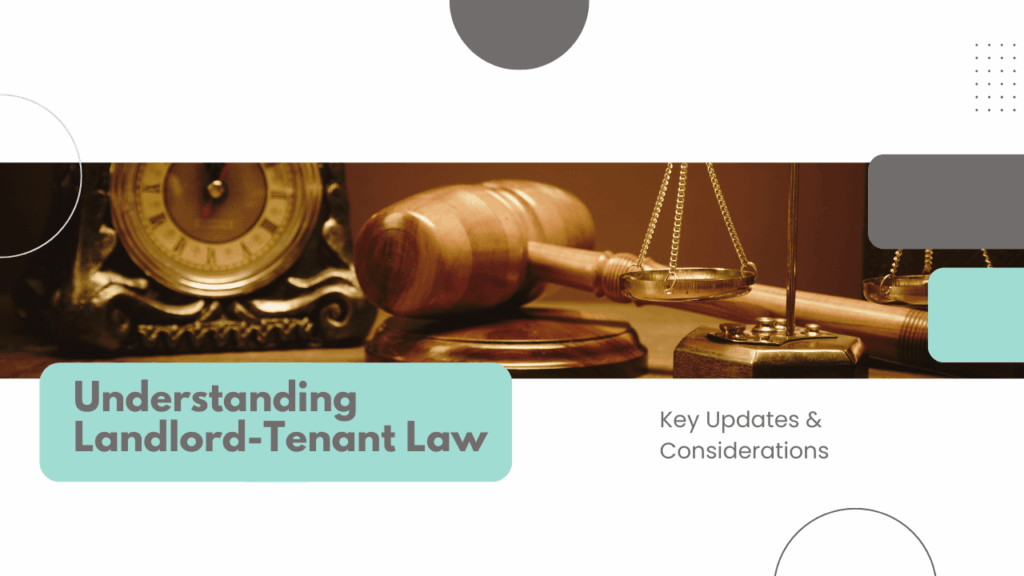
Have you been requiring tenants to buy or rent their own refrigerator when moving into your rental home?
Not anymore. A new California landlord-tenant law for 2026 mandates that landlords must provide stoves and refrigerators in order to meet habitability standards in their homes.
This may not be breaking news the way rent control limits and changes to security deposit laws are breaking news, but it underscores the importance of staying up to date on all the laws, regulations, restrictions, and requirements that come with renting out homes in Carlsbad and throughout California.
So, let’s take a look at the most important updates and considerations for the coming year.
Overview:
|
AB 628: Appliances and Habitability
Beginning January 1, 2026, California landlords must comply with Assembly Bill 628 (AB 628), which updates the state’s habitability laws. The new law amends Civil Code § 1941.1 to require that every residential rental unit include a working stove and a working refrigerator in good condition. These appliances must be capable of safely cooking and storing food.
The rule applies to all leases entered into, renewed, or amended on or after that date. Landlords must also repair or replace recalled appliances within 30 days of receiving notice.
We recommend that you review your properties now to confirm compliance, plan for appliance upgrades, and update lease agreements to reflect the new requirements. Failure to meet these standards could make a property legally “untenantable,” exposing you to tenant remedies like rent withholding, repair-and-deduct claims, or lease termination.
Eviction Limits and Social Security Payments
Social security benefits are easy to count on; when it comes to screening and source of income, a history of social security payments made landlords in California feel pretty secure. But the government is shut down, and things feel pretty uncertain for a large population of people.
A new law for 2026 restricts evictions for non-payment of rent when Social Security payments are interrupted.
Beginning in 2026, California Assembly Bill 246 (AB 246) will protect tenants from eviction when Social Security payments are delayed or interrupted. This law recognizes that many seniors and disabled tenants depend on these benefits to pay rent. If the state declares a “Social Security benefit payment interruption,” which is defined as a delay of three or more days beyond the expected payment date, landlords will be temporarily barred from evicting tenants for nonpayment of rent caused by the disruption.
To qualify for this protection, tenants must provide their landlord with a signed declaration of financial distress stating that the missed rent is directly related to the benefit delay. The protection remains in place until payments resume or for up to six months from the start of the interruption, whichever comes first.
Landlords should prepare to verify such declarations carefully and document rent arrears separately, as normal eviction procedures may resume once the payment issue is resolved.
AB 414: Security Deposit Refunds
AB 414 amends California’s Civil Code section 1950.5 to update the procedures for returning security deposits at the end of a tenancy.
Under current law, a landlord has 21 calendar days after a tenant vacates to return any remaining deposit and provide an itemized statement of deductions. AB 414 retains that deadline but alters how the deposit and statement must be sent.
In essence, if you received the security deposit or rental payments electronically from the tenant, you now must return the remaining portion electronically, unless you and the tenant agree otherwise in writing. If you did not receive payments electronically, the default requirement is to return by personal delivery or by a check payable to the tenant by mail.
The bill also clarifies delivery requirements when multiple adult tenants signed the lease. Unless there is a written mutual agreement, the remainder must be issued as a check payable to all adult tenants, and the itemized statement sent to any one adult tenant by mail.
Lastly, landlords must notify tenants of their right to electronic return when applicable. For property owners, this means reviewing how you collect deposits, documenting the chosen method of return in writing, and ensuring your return and communications comply with these updated rules. Non-compliance may weaken your deduction rights or lead to bad faith claim exposure.
Pricing Algorithms and Rents
California’s antitrust law was recently clarified to prohibit the collusive or coercive use of pricing algorithms, including those used to analyze or recommend rent levels.
What does this mean for you, as a rental property owner?
- It means that California is moving to tighten rules around how landlords set rent prices, particularly targeting use of automated or algorithm‐driven pricing tools.
- Under the legislation in SB 52, which was signed into law on October 6, 2025, landlords are prohibited from using algorithms that rely on non‐public competitor data, such as confidential rates or occupancy levels of other rental properties.
- The law bans the use of the same algorithm by two or more landlords operating in the same or connected market, addressing concerns about tacit collusion.
While landlords can still set rent based on their own operating costs, market conditions, and publicly available data, they cannot rely on tools that aggregate private competitor information or share algorithms across providers in a way that might suppress competition. These measures are being framed by lawmakers as safeguards against price-fixing disguised as AI services.
For renters and landlords, the result is a potential shift toward transparency and competitive independence in pricing: landlords must navigate without the aid of “black box” tools fed by secret data from other landlords, and tenants may benefit from more genuinely market-driven pricing rather than algorithmically inflated rents. At least this is the optimistic takeaway.
 All of these new laws and their compliance requirements highlight the importance of working with a smart, experienced, and up-to-date property management partner.
All of these new laws and their compliance requirements highlight the importance of working with a smart, experienced, and up-to-date property management partner.
That’s us. Please contact us at Pacific Property Management & Sales for any help with leasing, management, and maintenance in Carlsbad and the surrounding areas.
